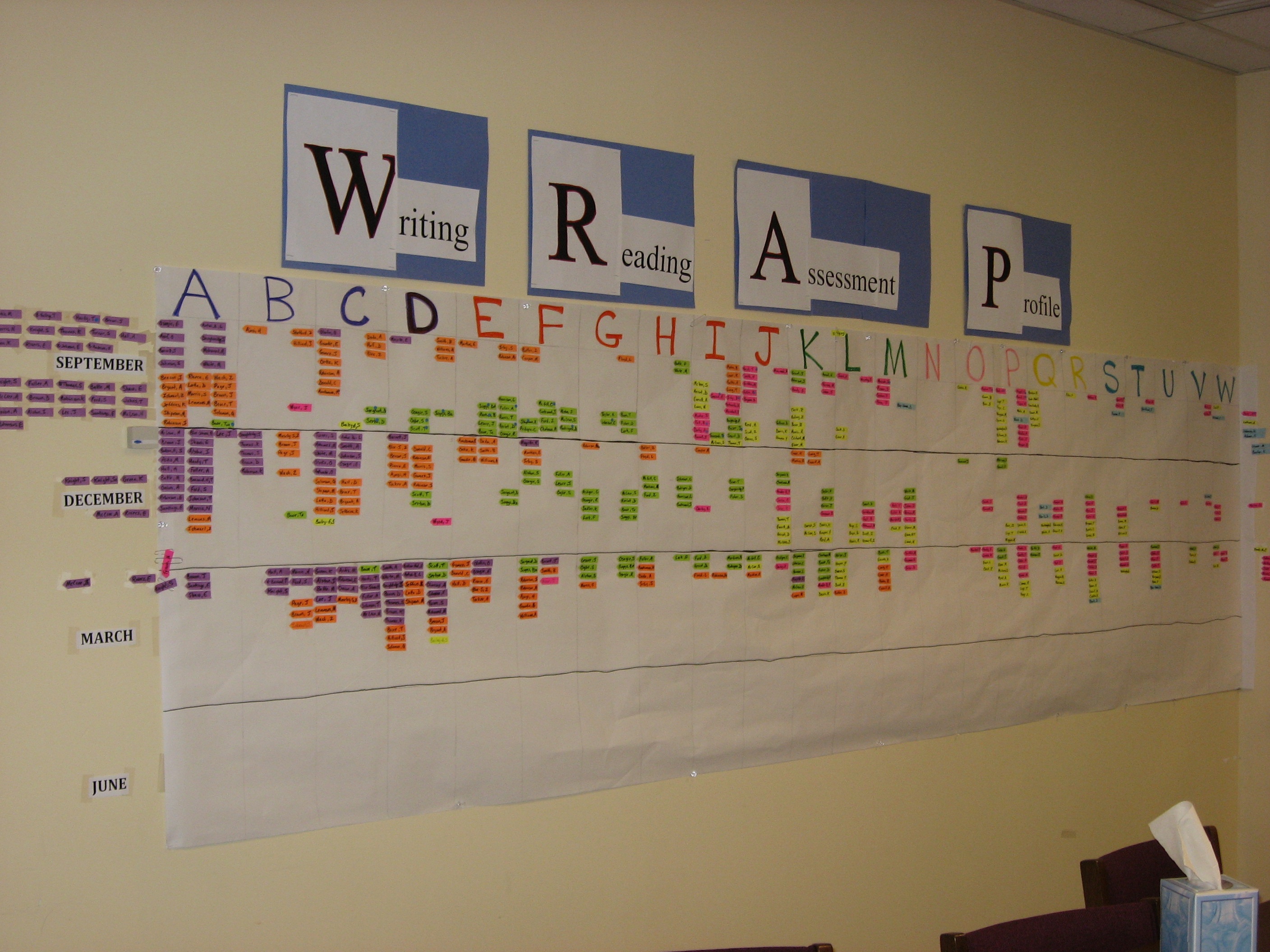
FOR AN EXPLANATION OF THIS PHOTO, CLICK HERE TO WATCH THIS SHORT VIDEO. Many thanks to Rahshene Davis at University Heights Charter School for this helpful explanation of how UHCS uses data to drive instruction!
What is DDI, and why/how can it be helpful to your school?
Data-driven instruction (DDI) provides teachers and school leaders with periodic feedback on how well students are performing on the standards that you want them to meet. Students typically take interim assessments in literacy and math (and sometimes science) every 6 weeks or so (i.e., four per year, leading up to state tests), and teachers analyze the results to determine how well students have mastered key standards and what needs to be re-taught. Teachers identify key skills that need to be addressed and create action plans to improve student performance.
Interim assessments lead to a stronger sense of collective responsibility. They focus teachers on results as opposed to beliefs (i.e., “How did students actually do?” vs. “How much do I think they know?”). Teachers tend to develop a heightened sense of urgency when faced with grade-level data, particularly data connected to the state standards and assessments, and they are more likely to convey that urgency to their students. Data analysis meetings encourage collaborative problem-solving: teachers share ideas about how to improve instruction in order to meet students’ academic needs. When the goals are clear, teachers are more likely to work together to meet those goals.
What do you need in order to implement DDI successfully?
Ø You need assessments that have been vetted. For information on how to create critical reading assessments, go to the GENERIC TEST PREP STRATEGIES page.
Ø The school leader(s) must support the plan and must work to ensure staff buy-in.
Ø Staff members need to know what you’re doing, why you’re doing it, and what it will require of them. They need to play an active role in the roll out.
Ø A point person at the school must coordinate logistics of assessment preparation, scheduling, scoring, and analysis. PS--This person must be comfortable with Excel spreadsheets.
Ø The school calendar must provide sufficient time for testing, scoring, and analysis, as well as additional professional development.
Ø Teachers need training on how to analyze data (See "Tools for Analyzing Data" below) and professional development that follows through on the results: classroom observations with feedback, feedback and support on lesson plans, and workshops that provide strategies and materials to strengthen instruction.
How much time does DDI take?
Ø The assessments typically require ½ day to administer, four times a year. Some schools spread the testing time over two days or allow certain sections to be administered in certain classes (e.g., writing sections in English class).
Ø If you do not have access to a Scantron machine, teachers will need time to score the bubble sheets and open-ended responses and enter the data into spreadsheets. The point person can be trained in how to sort the data and format it for analysis.
Ø Data analysis meetings may take various forms: all-staff, grade/subject-level cohorts, or one-on-one with the school leader/consultant.
Ø You should also budget time for workshops to provide additional training on identified instructional needs.
Tools for Analyzing Data:
In addition to training on how to analyze data, educators need tools to facilitate that process. Below are a few templates in the Download Zone that you might find useful:
- Generic Strategies for Analyzing Interim Assessment Data
- 40-minute Data Analysis Template (Thanks to Zoe Rind-Ryan for her help on this one!)
- Sample DDI Scoring Spreadsheet
How much are your students actually LEARNING from their performance(s)? Check out the Sample DDI Student Reflection Sheet, which requires students to reflect on how they did and why. It can easily be modified for any test. NOTE: While students' initial responses might be a bit superficial (e.g., "I don't know" or "I didn't understand the question"), the FOLLOW-UP CLASS DISCUSSION is sure to be fruitful! Thanks to Samantha Berman for this contribution!
If you have any questions, please contact:
Sarah Tantillo, Ed.D., LLC
sarahtantillo@literacycookbook.com
IN THE DOWNLOAD ZONE for DDI 101:
- Generic Strategies for Analyzing Interim Assessment Data
- 40-minute Data Analysis Template
- Sample DDI Scoring Spreadsheet
- Sample DDI Student Reflection Sheet

